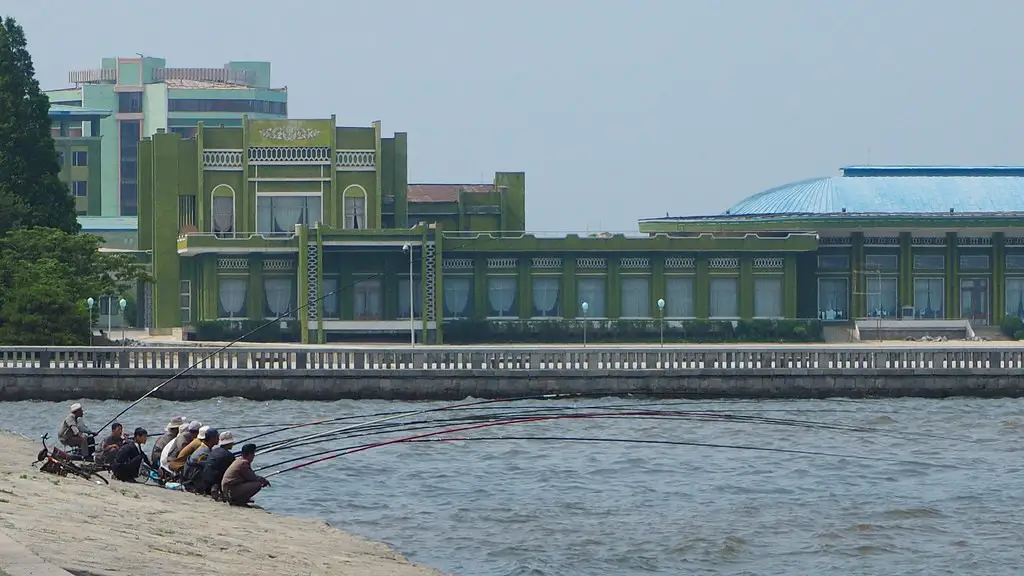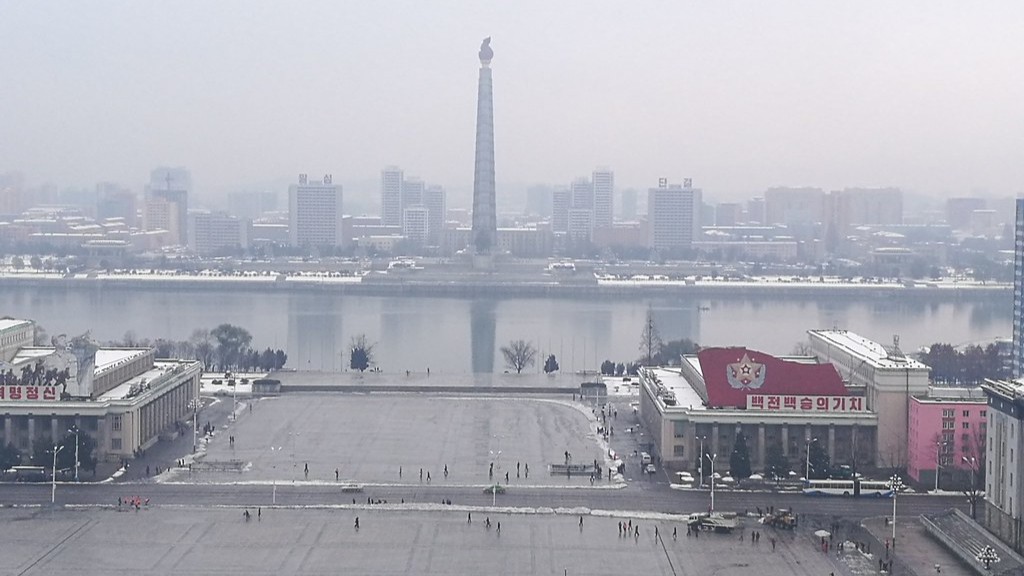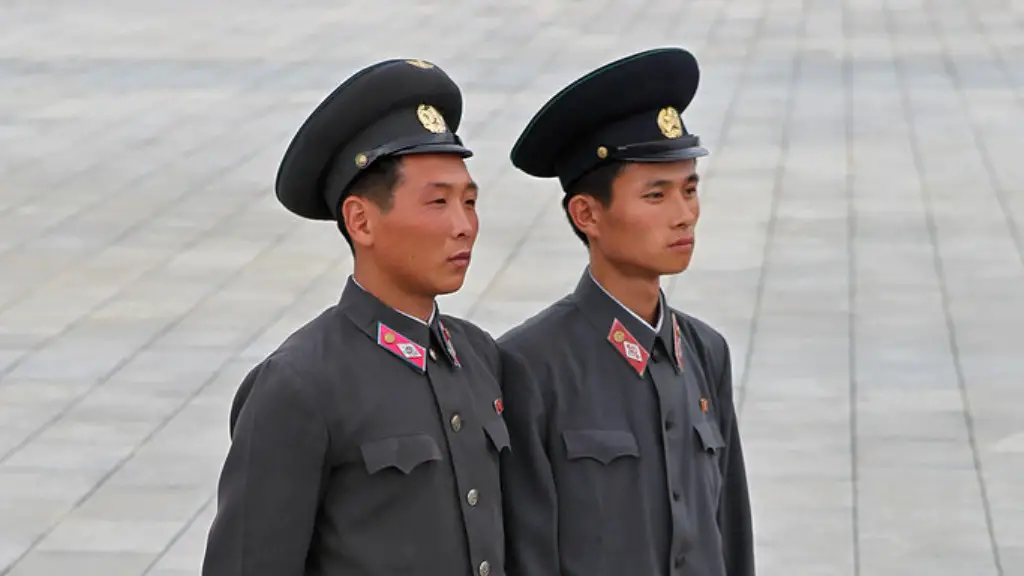Historical Background
North Korea’s anger toward the United States dates back to the 1950s. Following World War II, the country was divided in two, with the Soviet Union establishing a communist government in the north, and the United States setting up a democratic government in the south. This divide would later lead to two separate governments, and the beginning of a tumultuous relationship between the US and North Korea.
The US supported South Korea during the Korean War of 1950-53, an event which the North Koreans refer to as the “Fatherland Liberation War”. During the war, the US and South Korea fought against North Korea and its allies. Even though the war ended in an armistice, the two countries never officially signed a peace treaty, making them technically still in a state of war.
Since then, relations between the two countries have been strained. The US has imposed economic sanctions on North Korea in an effort to force it to abandon its nuclear program, while North Korea has seen this as a form of hostility.
Economic Sanctions
In recent years, the US has imposed harsh economic sanctions on North Korea in an effort to convince it to abandon its nuclear weapons program. These sanctions have had a devastating effect on the North Korean economy. The US has targeted North Korea’s banking and trade sectors, and has imposed sweeping restrictions on North Korean citizens, limiting their ability to travel, access to technology, and access to foreign capital.
For North Korea, these sanctions are seen as an attack on its sovereignty and a violation of international law. North Korea believes that the US is attempting to destabilize its regime and weaken its economy, in an effort to eventually take over the country.
In response, North Korea has ramped up its military spending and has continued to develop its nuclear program. The North Korean government sees nuclear weapons as its last line of defense against the US, and has vowed to never give up its nuclear program.
American Troops in South Korea
The US maintains a strong troop presence in South Korea, and military exercises in the region have only further escalated tensions between the US and North Korea. North Korea sees these military drills as a rehearsal for invasion, and as a provocation of its own forces.
American military forces in South Korea have been a source of tension between the two countries for decades. North Korea has often seen these forces as a threat to its own security, and has even threatened to carry out a pre-emptive attack against US forces.
Discriminatory Language
Another source of anger toward the US has been the discriminatory language used by American politicians in reference to North Korea. For example, former President Donald Trump referred to North Korean leader Kim Jong Un as “Rocket Man”, while current President Joe Biden has called North Korea an “ungoverned space”. This kind of language has been seen by North Koreans as a form of disrespect and condescension.
In addition, the US has labeled North Korea as part of an “Axis of Evil” and has included it in its list of “State Sponsors of Terrorism”. These type of comments has further alienated North Korea from the international community, adding fuel to the fire of its anger towards the US.
Relations With China
North Korea’s relationship with China is also a factor in its anger towards the US. The US has long accused China of providing support and protection to North Korea, and has levied sanctions against it in response. These sanctions have hit the Chinese economy hard, and China has accused the US of trying to contain its growth. This situation has created a rift between the two countries, and North Korea views it as a further attack on its sovereignty.
The US has also been accused of trying to undermine North Korea’s relationship with China by trying to broker a deal between North Korea and South Korea. The US has been trying to get North Korea to denuclearize and sign a peace treaty with South Korea. However, China sees this as a move to further isolate North Korea, and to further increase US dominance in the region.
Perception of US Power
North Korea’s anger towards the US is driven by a perception of US power and influence. North Korea views the US as a domineering force in the world, and sees its attempts to impose its own agenda on other countries as a threat to its own national security. North Korea has long seen the US as the single greatest threat to its survival, and its anger towards the US is rooted in this fear.
North Korea’s fear of US power has led it to develop its own nuclear weapons as a deterrent. North Korea believes that possessing nuclear weapons will give it the power to hold off the US, and thus preserve its sovereignty.
International Negotiations
The angry relationship between the US and North Korea has so far been unable to be resolved through international negotiations. While the two countries have engaged in negotiations in the past, the US has refused to lift its economic sanctions or provide economic assistance to North Korea in exchange for denuclearization.
The lack of progress in negotiations has led to an even further deterioration of relations between the two countries. The US has continued to increase economic sanctions, while North Korea has continued to develop its nuclear program. There seems to be no end in sight to the hostility between the two countries, and the situation is getting increasingly dangerous.
North Korea’s Nuclear Program
North Korea’s development of its nuclear program has been a major source of conflict between the two countries. The US has long viewed North Korea’s nuclear program as a threat to world stability and a potential danger to its own security.
The US has imposed multiple rounds of economic sanctions in an effort to persuade North Korea to abandon its nuclear weapons program, but the country has so far refused to do so. North Korea views its possession of nuclear weapons as the only way to defend itself against a US invasion, and has so far refused to give up its nuclear program.
Stereotypes of North Koreans
Stereotypes of North Korea held by the US have also been a source of tension between the two countries. The US has long portrayed North Koreans as irrational and dangerous, and this type of language has only increased North Korea’s sense of distrust and anger towards the US.
North Korea has also accused the US of only seeking to demonize and marginalize it in order to justify its own agenda. North Korea believes that the US is using its own rhetoric to create a false perception of North Korea, and to therefore isolate it from the international community.
Aggression Towards South Korea
North Korea’s anger towards the US has also been expressed in its aggression towards South Korea. North Korea has long viewed South Korea as a puppet state of the US, and has accused it of harboring American military forces which are a threat to its own security.
North Korea has carried out numerous acts of aggression against South Korea, including its shelling of a South Korean island in 2010 and its sinking of a South Korean warship in the same year. North Korea’s aggression towards South Korea is seen as a direct challenge to US power in the region, and is seen as a way for North Korea to send a message to the US.





